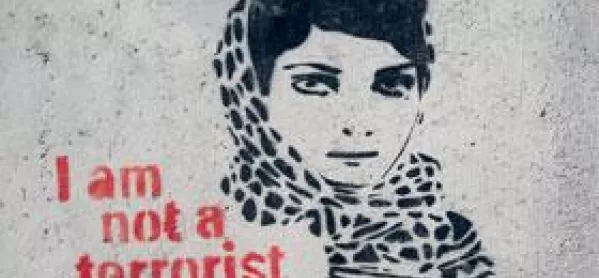The racism concealed by a culture of silence

The majority of schools are failing to do enough to tackle racism and Islamophobia, an equality rights leader has warned.
Rowena Arshad, co-director of the Centre for Education for Racial Equality in Scotland, said that while some headteachers had developed an inclusive atmosphere, most only paid lip service to the problem, effectively teaching pupils to “shut up” about the most difficult issues.
A damaging view that equality was “something we’ve already covered” and less important than exam results risked destroying the progress that schools had made, she added.
But her claims were disputed by the Scottish government, which said it was “committed to eradicating discrimination” in schools. Equality was a “key part” of Curriculum for Excellence, it added. It also pointed to figures showing that the rate of religiously aggravated crime was falling.
Dr Arshad, head of Moray House School of Education at the University of Edinburgh, said: “There is still an issue. It has been referred to in the US as `everyday racism’. A culture still exists which prevents people on the receiving end from coming forward because they have a message that nothing will be done.
“Some of our schools are very proactive on equality, particularly Islamophobia and racism. In those schools that have worked hard to create a culture of openness, pupils and staff are encouraged to come forward [and] speak with a voice of confidence. “But those schools are the minority. In the schools that are tentative about these things, they are running the risk of undoing any good work which they did in the past.”
Dr Arshad said that too many schools continued to “make all the right noises” while struggling to deal with problematic subjects such as race, religion, class and sexual orientation.
“I fear there is a view that we have done equalities,” She added. “I think there is also a tension between `proper education’ - the three Rs - and equality and sustainability, which are seen by some as peripheral things that we do in one-off sessions.”
Last year, teenager Hassaan Mansoor admitted pulling a knife on a classmate after enduring months of Islamophobic abuse at Garnock Academy in Kilbirnie, North Ayrshire, including being called a “terrorist” and warned that his mother would be stabbed for wearing a headscarf. He was spared jail and instead given community service.
Dr Arshad claimed that while similar taunting and attacks were now largely confined to the streets not schools, “everyday racism” persisted in classrooms, manifesting as a lack of respect for and understanding of pupils, who were stereotyped and “lumped together as `the Africans’”.
As a teacher trainer, Dr Arshad acknowledged that she had a central role to play in improving the confidence of teachers to tackle racist or Islamophobic comments.
One Asian student teacher she spoke to during a research project told her that when students put jumpers on their heads on the anniversary of the 911 terrorist attack, his mentor advised him to ignore the prank.
The Muslim Council of Scotland said that the Garnock Academy case highlighted the need for schools to do more to prevent Islamophobia from escalating and leading to violence. “It was an example of what can happen when things get out of hand,” a spokesman said.
School Leaders Scotland (SLS) agreed that some headteachers had adopted a “tick box” approach to meeting the requirements of recent legislation under the Equality Act 2010, but it also defended progress.
Ken Cunningham, SLS general secretary and former headteacher, said: “With the pressures of everything else in schools, it can go down the pecking order. Legislation dictates that it has to be done, so you tick the boxes.There was a surge after the legislation came in. But what’s happened now, I suspect, is that it’s been put on the back burner because of other demands.”
Larry Flanagan, general secretary of the EIS teaching union said: “Obviously every school will have a focus on this somewhere in the course of the curriculum. But.with the renewal of racist attitudes because of the social and political situation with Islamophobia and immigration, there’s a need to address these issues explicitly.”
The government said that recent statistics showing a fall in religiously aggravated offending - down 15 per cent this year compared with 2012-13 - were testament to the hard work being done to combat discrimination. The reduction in offences includes a drop in Islamophobic incidents, which fell from 12 per cent of the total in 2012-13 to 8 per cent in 2013-14.
A spokeswoman said: “Bullying and harassment in any form, including on the grounds of race or religion, is not acceptable and will not be tolerated in any Scottish schools.”
Keep reading for just £1 per month
You've reached your limit of free articles this month. Subscribe for £1 per month for three months and get:
- Unlimited access to all Tes magazine content
- Exclusive subscriber-only stories
- Award-winning email newsletters


